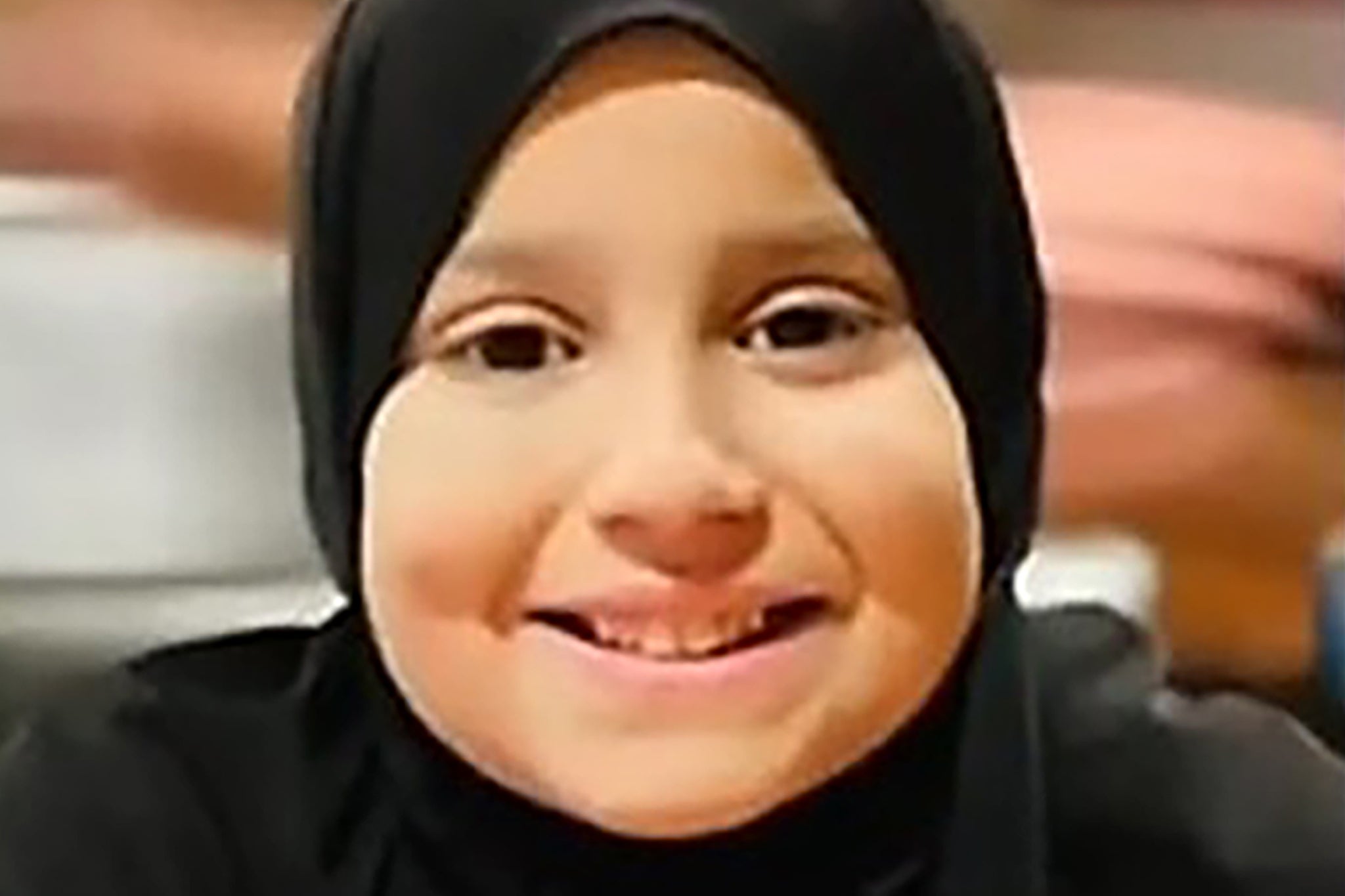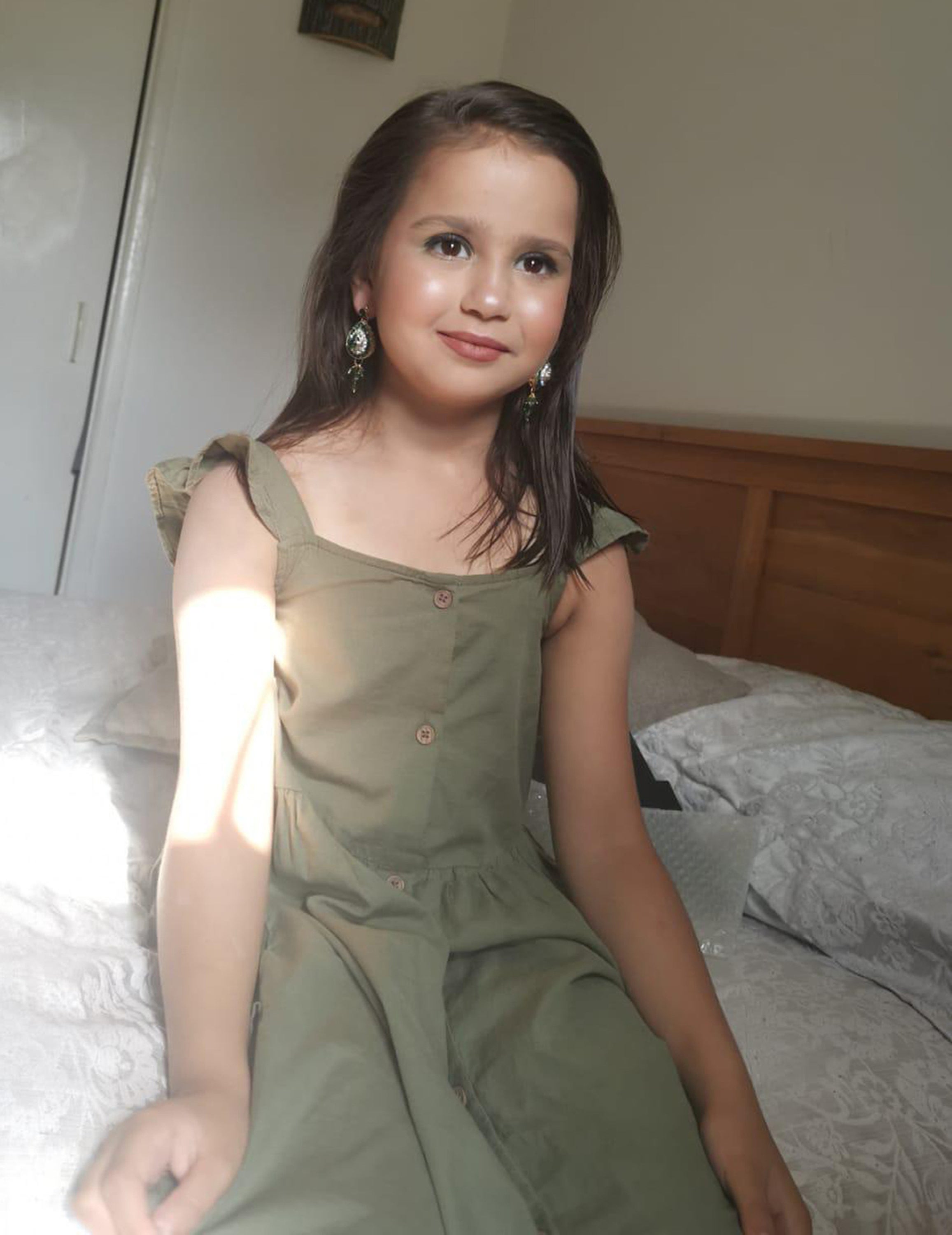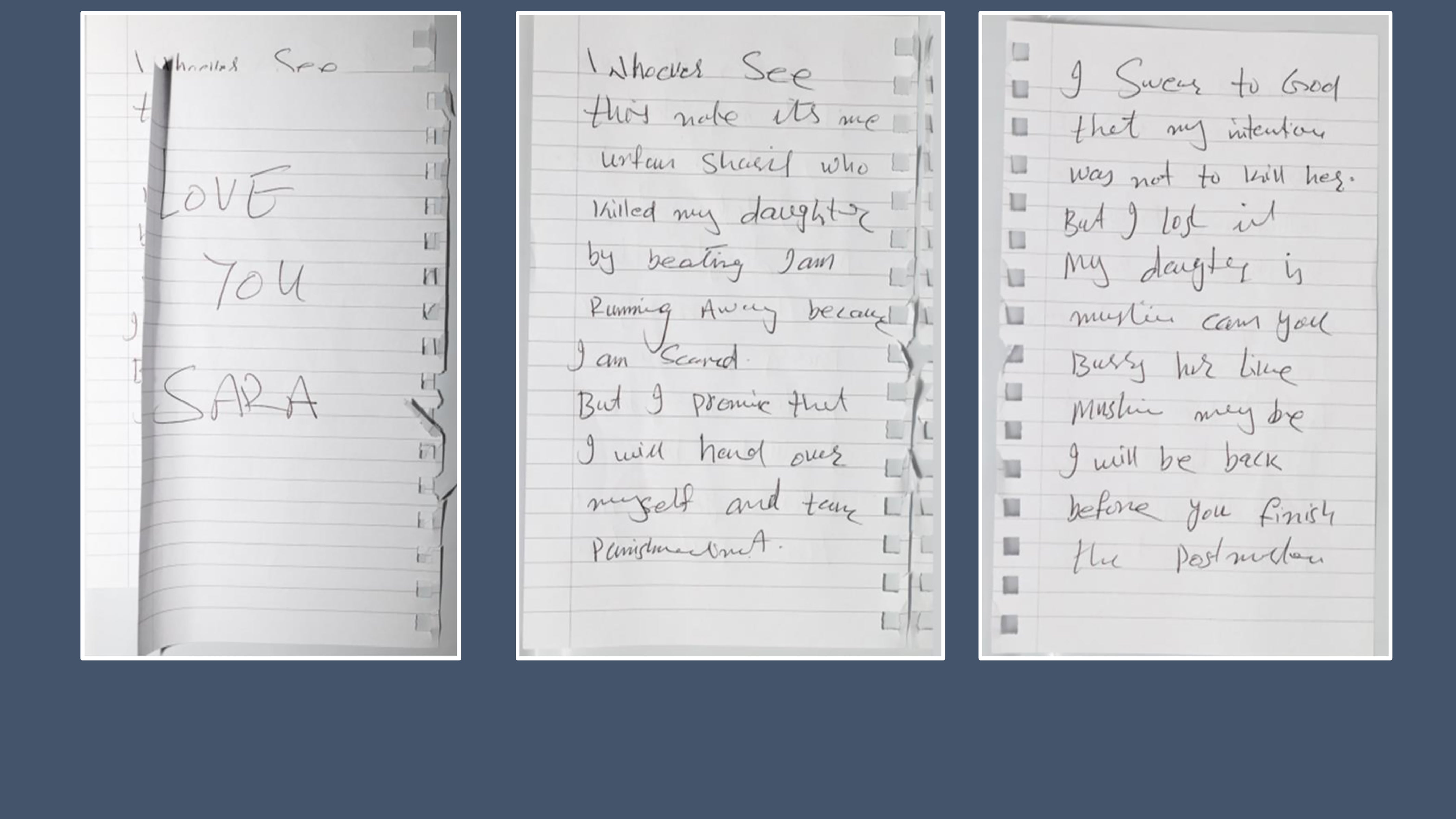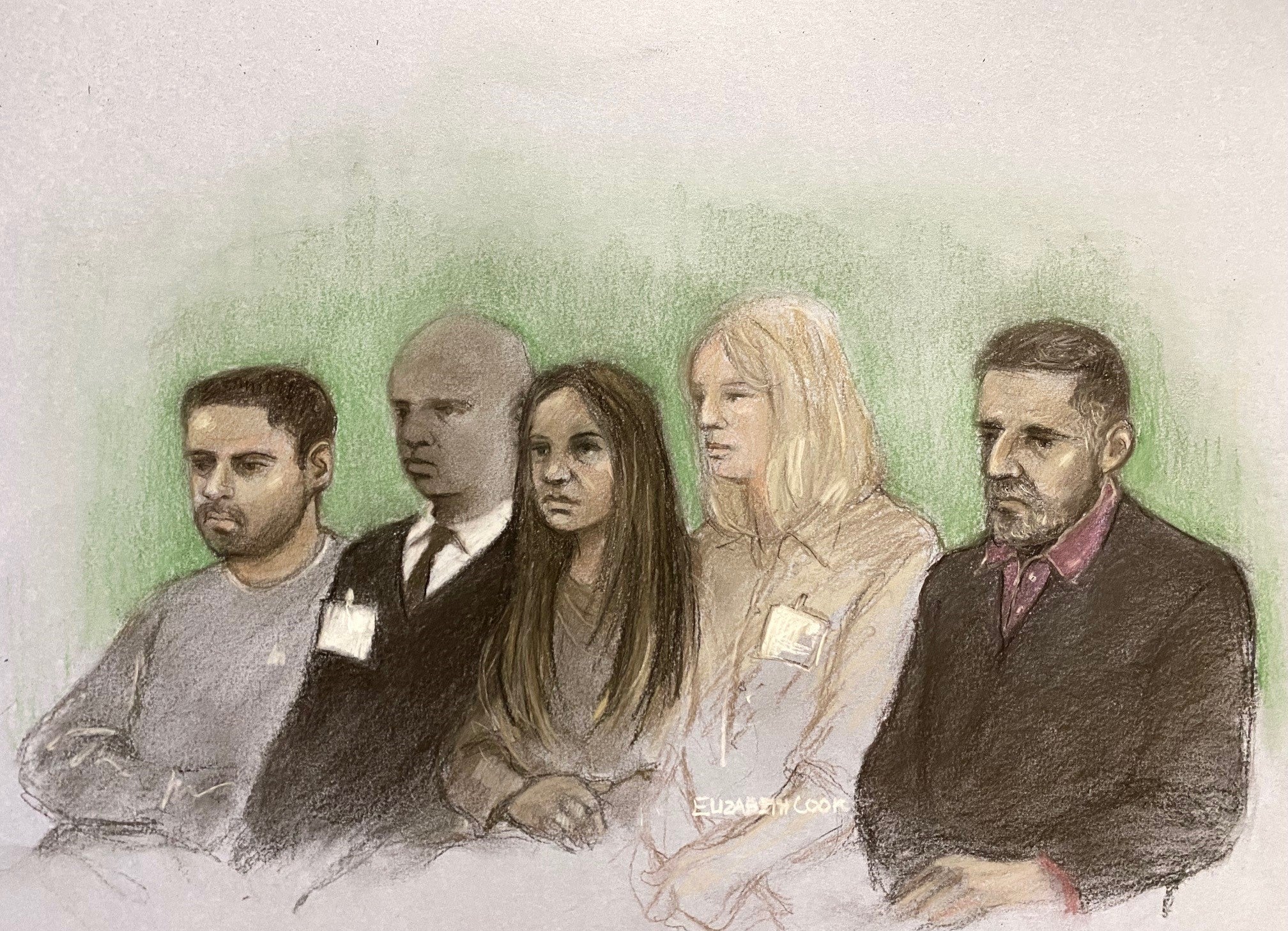Schoolgirl Sara Sharif suffered a catalogue of 71 injuries before her death, jury told
The 10-year-old’s injuries were consistent with ‘significant and repetitive blunt force trauma’ with an ‘instrument’, a court heard

Schoolgirl Sara Sharif’s body was found with at least 71 recent injuries and two traumatic brain injuries inflicted days before her death as she endured a “campaign of abuse”, a court heard.
Jurors were shown a catalogue of bruises, burns, probable bite marks and other injuries identified on the 10-year-old by forensic pathologist Dr Nathaniel Cary.
He told the Old Bailey the total number of injuries sustained by the 4ft 6in schoolgirl, who weighed 4st 3lbs, is not known because it is impossible to tell if each mark was the result of one or several injuries.
Sara died from complications arising from multiple injuries and neglect, he told the jury. Her death was described as “cumulative” rather than being attributed to one specific injury or incident.
However, the pathologist said she may have gradually succumbed to two traumatic brain injuries she suffered two to five days earlier if she was left unattended.
In his conclusions, the expert noted “widespread” injuries to the skin’s surface, including puncture wounds, bruising and internal injuries to the abdomen.
“These findings are in keeping with significant and repetitive blunt force trauma,” he told the Old Bailey, adding the pattern of injuries is in keeping with the use of an “instrument”.

He also found evidence of old injuries, including “blotchy scarring” on the left jawline, multiple purple scars around the pelvis, marks on her left leg, and fine scars and blotchy brown discolouration on the left forearm.
Sara’s father Urfan Sharif, 42, stepmother Beinash Batool, 29, and uncle Faisal Malik, 28, each deny murdering the 10-year-old and causing or allowing her death.
Police discovered Sara’s body at her home in Woking, Surrey, on 10 August last year following a 999 call from Mr Sharif – who had already fled to Pakistan with the other defendants.
He told the operator he had “legally punished” Sara for being “naughty” as he sobbed: “I’m a cruel father.”
A police officer discovered the schoolgirl’s lifeless body placed under a neat white sheet on a bunk bed alongside a note, which matched Mr Sharif’s handwriting, which read: “I lost it.”
The prosecution alleges she was forced to wear “homemade hoods” made of plastic bags and parcel tape as she was subjected to a campaign of abuse which lasted up to two years.

Dr Cary described finding a collar of “intense purplish red bruising” around her neck and torso. Giving evidence, he said these would have been the result of either “blunt impact or solid pressure, or both”.
He also found bruising with “tram track features” which was consistent with “being struck with an elongated object”, he explained under questioning from prosecutor William Emlyn Jones KC.
Multiple parallel transverse linear red marks were also found elsewhere on her body. The expert said suffering a number of strikes was the “simplest explanation” for this type of injury.
He also found evidence of bruising consistent with blunt force impact to the abdomen, a “gaping” head wound and a CT scan revealed multiple skeletal injuries, the court heard.
The pathologist also noted he “could not exclude” the possibility that burns contributed to Sara’s death through sepsis.
Dr Cary said there was a chance that infection could have entered her bloodstream and caused generalised collapse after he found evidence of skin ulcers consistent with burns on her buttock and ankle bones.
The jury previously heard Sara had suffered “probable human bite marks”, an iron burn and scalding from hot water.

Sara was taken out of school in April 2023 and died four months later on 8 August. Mr Sharif, Ms Batool and Mr Malik fled to Pakistan the following day, leaving Sara’s remains alone in the family home.
After intense media interest in the case, the trio returned on a flight to the UK on 13 September and were arrested and charged with Sara’s murder.
Each of the defendants denies murder, with jurors told they were seeking to “deflect the blame” onto the others. The prosecution alleges all three defendants “played their part” in the violence and says it was “inconceivable” that just one of them had acted alone.
The trial before Mr Justice Cavanagh continues.
